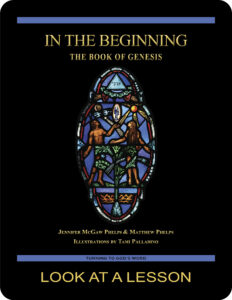patriarch
 Most of the book of Genesis is concerned with telling the history of the patriarchs Abraham, Isaac, Jacob, and Joseph. A number of important events surrounding their lives laid the foundation of the people of Israel and shaped the history of the world. Although there are more biblical figures in the book of Genesis who sometimes are called patriarchs, Abraham, Isaac, Jacob, and Joseph always are considered the primary Old Testament patriarchs. What is a patriarch, and what makes their role different from the part so many others had to play?
Most of the book of Genesis is concerned with telling the history of the patriarchs Abraham, Isaac, Jacob, and Joseph. A number of important events surrounding their lives laid the foundation of the people of Israel and shaped the history of the world. Although there are more biblical figures in the book of Genesis who sometimes are called patriarchs, Abraham, Isaac, Jacob, and Joseph always are considered the primary Old Testament patriarchs. What is a patriarch, and what makes their role different from the part so many others had to play?
The word patriarch comes from two Greek roots—πατριά (patria) means “family,” and ἀρχός (archos) means “leader” or “chief.” Combined into the single word πατριάρχης (patriarches), this combination signifies the father or chief of a race of people.
The biblical patriarchs certainly fit this description. Much of the focus of their role, especially for Abraham and Jacob, was that they would have many children and leave many descendants. They set the tone for the worship of God and passed their intimate relationship with God on to their children as well. In that sense, they were in a unique position because they were first. Just as later the judges and the kings each had periods of time relevant to their roles, the patriarchs had a specific role to play at a specific time.
In light of this context, it is interesting to note that in the early days of the Church before the first split of East and West, there were 12 Christian patriarchs, bishops seen as successors to the apostles and each overseeing a significant region. The Patriarch of Rome who sat in the chair of Peter was considered to be first among equals. After the split, the eastern Church continued to use the title of Patriarch, but that title has fallen out of use in the western Church.
Why do you think that the early Church called the successors to the apostles patriarchs? What does this choice of title suggest about how early Christians viewed the role of the apostles?
related topic: Abbot Primate
you also may like our study of the book of Genesis
 The first seven lessons of In the Beginning: The Book of Genesis, a 28-lesson Catholic Bible study with an imprimatur, provide an in-depth look at the very earliest biblical history—including the two accounts of Creation, events surrounding the Fall of Adam and Eve, the relationship between Cain and Abel, and the baptismal foreshadowing present in the account of Noah and the Flood. Remaining lessons look at lives of the patriarchs Abraham, Isaac, Jacob, and Joseph. Click on the book’s cover to view a sample lesson.
The first seven lessons of In the Beginning: The Book of Genesis, a 28-lesson Catholic Bible study with an imprimatur, provide an in-depth look at the very earliest biblical history—including the two accounts of Creation, events surrounding the Fall of Adam and Eve, the relationship between Cain and Abel, and the baptismal foreshadowing present in the account of Noah and the Flood. Remaining lessons look at lives of the patriarchs Abraham, Isaac, Jacob, and Joseph. Click on the book’s cover to view a sample lesson.
 Click on the picture of the statue of Moses with horns (above) to learn more about Lost in Translation. A new entry is archived each Monday. Contact us to receive Lost in Translation by email every week. You may use any of the contact links on our website to ask Matthew a question.
Click on the picture of the statue of Moses with horns (above) to learn more about Lost in Translation. A new entry is archived each Monday. Contact us to receive Lost in Translation by email every week. You may use any of the contact links on our website to ask Matthew a question.
